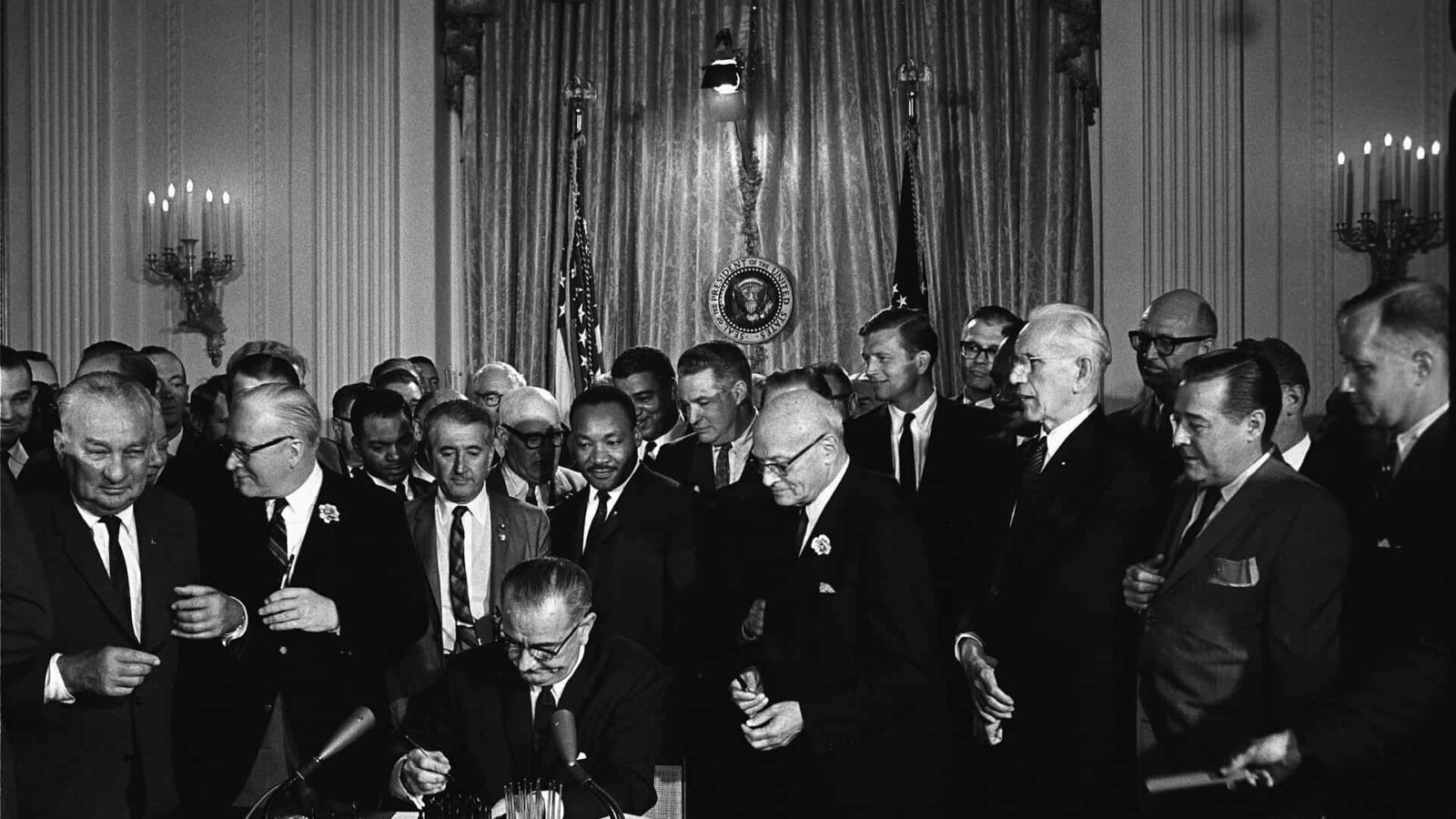July 2, 1964: President Lyndon B. Johnson signed the Civil Rights Act of 1964, the most significant civil rights legislation since Civil War Reconstruction. The law prohibited discrimination in public places, set up school integration, and outlawed employment discrimination.
Civil Rights Act (1964)
This act, signed into law by President Lyndon Johnson on July 2, 1964, prohibited discrimination in public places, provided for the integration of schools and other public facilities, and made employment discrimination illegal. It was the most sweeping civil rights legislation since Reconstruction.
In a nationally televised address on June 6, 1963, President John F. Kennedy urged the nation to take action toward guaranteeing equal treatment of every American regardless of race. Soon after, Kennedy proposed that Congress consider civil rights legislation that would address voting rights, public accommodations, school desegregation, nondiscrimination in federally assisted programs, and more.
Despite Kennedy’s assassination in November of 1963, his proposal culminated in the Civil Rights Act of 1964. President Lyndon Johnson signed it into law just a few hours after it was passed by Congress on July 2, 1964.
The act outlawed segregation in businesses such as theaters, restaurants, and hotels. It banned discriminatory practices in employment and ended segregation in public places such as swimming pools, libraries, and public schools.
Passage of the act was not easy, however. Opposition in the House of Representatives bottled up the bill in the House Rules Committee. In the Senate, Southern Democratic opponents attempted to talk the bill to death in a filibuster. In early 1964, House supporters overcame the Rules Committee obstacle by threatening to send the bill to the floor without committee approval. The Senate filibuster was overcome through the floor leadership of Senator Hubert Humphrey of Minnesota, the considerable support of President Lyndon Johnson, and the efforts of Senate Minority Leader Everett Dirksen of Illinois, who convinced enough Republicans to support the bill over Democratic opposition. When the compromise bill was finally put to a vote in the Senate, it passed 73 to 27. It was noted in the Congressional Record that applause broke out in the Senate galleries.
Title VII of the act created the Equal Employment Opportunity Commission (EEOC) to implement the law. The EEOC enforces laws that prohibit discrimination based on race, color, religion, sex, national origin, disability, or age in hiring, promoting, firing, setting wages, testing, training, apprenticeship, and all other terms and conditions of employment.
